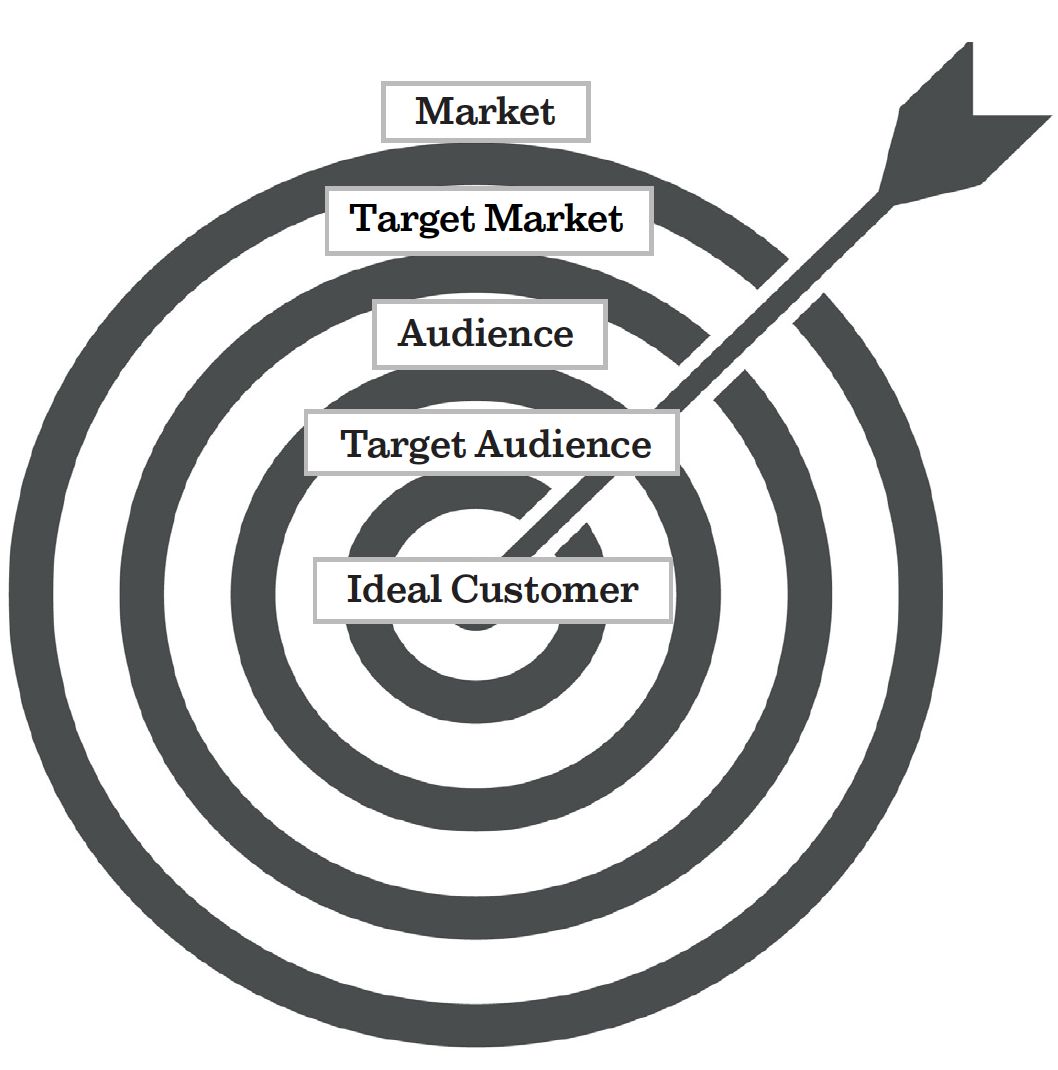Marketing Terms: What Do They Really Mean?

Understanding the market for your business means answering the question, “Who am I talking to?” There are plenty of marketing terms that can make this a little confusing. Is there a difference between your audience and your target audience? Who is your avatar? Who is your ideal customer?
Some of these terms are used interchangeably or defined in different ways depending on which source you consult. So before we pretend like everyone knows what all of those mean (or confusion abounds over conflicting descriptions), here are a few key definitions.
Your Market: Key Definitions
Market: The entire group of buyers for certain products who also represent the demand for those products. (E.g., the health and wellness market, the market for food delivery services, the athleisure market.)
Target market: A subset of buyers within the larger market whom you believe will be interested in your product based on their shared characteristics, such as their age, gender, income level, vocation, or interests. Example: “Middle managers at large corporations who are between the ages of 25-40, earning $60-80K per year.”
Audience: The people in your market who are actually paying attention to you. How do you know who’s paying attention to you? Your audience includes current customers, store traffic (physical or digital), social media followers, email subscribers, website visitors, blog readers, podcast listeners, people who have seen or clicked on your ads, etc. You may or may not have contact information for them. However, your engaged audience (the people who have interacted consistently with you or your content) is a more accurate picture of who’s paying attention to you.
Target audience: A segment of your target market (or current audience) that you are focusing on for a particular promotion or campaign. For instance, if you sell products in the health and fitness market, the target audience for a campaign promoting your new elite athlete fitness program will be different from the target audience for the campaign promoting your weight loss program (though there may be some overlap).
Potential customers: The people who are most likely to have an interest in doing business with you. They may also be referred to as leads.
Customers: People who actually do business with you.
Ideal customer: A real, current customer who is exactly the kind of person you want to do business with. This is the customer you would clone if you could.
Avatar: A fictionalized profile of either your ideal customer or someone who represents the key qualities of your target market. This is also sometimes referred to as a buyer persona. (Your ideal customer is a human being who will change; an avatar represents the ideal customer at a fixed moment in time so that you can stay consistent in your messaging to that person.)

The Big Question: How Do You Choose a Target Market?
Right now you may be asking, “What if I don’t know who would benefit the most from my product? How am I supposed to choose a target market?”
Your choice of target market doesn’t need to be a stab in the dark. Data should help you make that selection. Gathering data will look different depending on whether or not you already have an audience.
Stay tuned for an upcoming guide on how to gather data and decide on your target market!
---
This is an edited excerpt from my book Mission, Market, Message: The Actionable Guide to Marketing for Small Business Owners, which you can purchase on Amazon.
